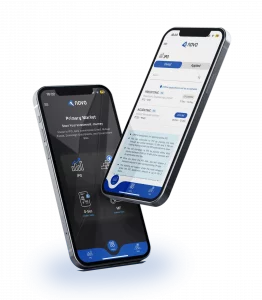If you open a Demat account in India, you are most likely to hear about the two acronyms which are NSDL and CDSL. These are the two infamous depositories of India which will keep all your holdings in a safe manner.
Let us first know what a depository is to understand more about NSDL and CDSL.
What is a Depository?
Imagine a depository as an online bank for your shares. Just as you keep money in a savings account, a depository keeps your stocks, bonds, mutual funds, ETFs, and other securities in an electronic format.
In India, there are two approved depositories that operate these services:
- NSDL (National Securities Depository Limited)
- CDSL (Central Depository Services Limited)
Both are under SEBI regulation and play the same fundamental purpose which is secure and smooth management of securities.
NSDL - The First Mover:
NSDL was established in 1996 and is promoted by National Stock Exchange (NSE). NSDL was the pioneer depository to be set up in India, primarily constructed to eliminate the paperwork and risks involved with physical share certificates.
NSDL gradually emerged as the favoured platform for institutional investors, banks, and large financial firms.
It’s stable, secure, and well-integrated with older financial systems.
Quick facts about NSDL:
- Launched: 1996
- Supported by: NSE
- Famous for: Institutional dominance
- Account ID: Begins with “IN”
CDSL - The Retail Favourite:
CDSL entered the scene in 1999 and is being promoted by the Bombay Stock Exchange (BSE). While NSDL concentrated on reducing costs, CDSL worked towards democratizing access — making Demat services accessible to retail investors and new-age brokers in abundance.
Quick facts on CDSL:
- Launched: 1999
- Supported by: BSE
- Renowned for: Retail adoption
- Account ID: Numeric only (no “IN”)
- Listed company: Yes (Ticker: CDSL)
How are they different?
Though NSDL and CDSL perform the same function, there are a few distinct differences to mention:
Feature | NSDL | CDSL |
Promoter | National Stock Exchange (NSE) | Bombay Stock Exchange (BSE) |
Year Established | 1996 | 1999 |
Meaning | First and large depository in India, facilitating the holding and transfer of securities electronically | Second largest depository in India, also facilitating electronic holding and transfer of securities |
Market Focus | Institutional investors | Retail investors |
Market share | Higher market share, due to early establishment and larger size | Lower market share compared to NSDL |
Major shareholders | National Stock Exchange , IDBI Bank, Unit Trust of India, State Bank of India, HDFC bank and others | Bombay Stock Exchange, Bank of India, State Bank of India, HDFC Bank, Bank of Baroda, Union Bank of India, Standard Chartered Bank and Life Insurance Corporation of. India |
Demat Account Format | A 14-digit number prefixed by “IN” | A 16-digit number, created by combining an 8-digit DP ID and an 8-digit client ID |
Integration with Brokers | Banks, full-service brokers | Fintech brokers and discount platforms |
Listed on Stock Exchange | National Stock Exchange (NSE) | Bombay Stock Exchange (BSE) |
Will you be able to choose the depository of your choice?
You don’t actually get to decide between NSDL and CDSL directly. Your depository is typically selected on the basis of which depository participant (DP) you open your Demat account with.
For instance:
- If you open an account with us, you’re likely to be registered with CDSL.
That being said, both are safe, SEBI-regulated, and as good as each other. The decision isn’t a matter of quality but a matter of which platform suits you and what type of investor you are.
Final thoughts:
Whether you have your securities in NSDL or CDSL, functionality remains the same at the basic level. You can invest, sell, hold, and transfer your investments without concerning yourself with which depository you’re using.
Nevertheless, it’s nice to know where your Demat account is located, particularly if you anticipate investing through several platforms, or intend to shift your holdings between accounts.
Ultimately, CDSL is more in the face of today’s retail investors, while NSDL remains devoted to institutional players and established DPs.
And for the ordinary investor? Either will suffice just as well.










